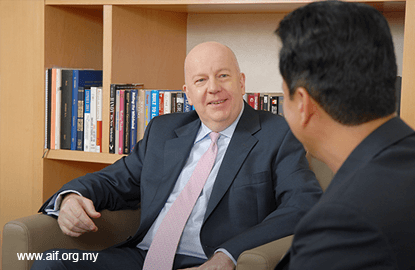
This article first appeared in The Edge Financial Daily, on October 16, 2015.
KUALA LUMPUR: Malaysian young adults are accruing debt at an early age, a survey by the Asian Institute of Finance (AIF) has revealed, while some 40% are spending more than they can afford.
The survey among Malaysian “Gen Y” respondents between 20 and 33 found that they are living on “financial edge” and are facing money stress, with the majority living on high costs, borrowings of loans and credit cards.
“Our study revealed that 75% of Gen Y have at least one source of long-term debt, and 37% have more than one long-term debt obligation. Long-term debt obligations include car loans, education loans and mortgages,” the AIF said in its report, “Understanding Gen Y — Bridging the Knowledge Gap of Malaysia’s Millennials”, released yesterday.
“To offset this debt, they are relying on high-cost borrowing methods — 38% of Gen Y [are] reported to take personal loans, while 47% are engaged in expensive credit card borrowings.”
Their debt woes, the AIF said, are the results of “impulse-buying” behaviour, besides easy access to personal loans and credit card financing.
“The impulse-buying behaviour of these young consumers is tied to the basic want for instant gratification, which is exacerbated by easy access to the world of online shopping. These young adults draw on technology for everyday tasks.
“This includes seamless online purchasing, which encourages the ‘buy-now-pay-later’ behaviour among this generation of consumers. Reliance on credit cards for online purchasing has further encouraged this behavioural trait,” the report, targeted at banking, financial and learning institutions, said.
The report said around 16% to 17% was spent on maintaining lifestyles, 24% on loan repayments, and 30% to 31% on living expenses, with little difference between male and female respondents.
There were also indications that there is a steady rise in loan repayment levels as Gen Y goes up the income bracket.
Of the 1,011 young professionals interviewed, 60% were single, while the majority (43%) earned between RM1,500 and RM3,000. Some 32% earned between RM3,100 and RM4,500, and 8% earned below RM1,500.
The survey showed that 40% of respondents were spending more than what they could afford, while only 30% said they were living comfortably with their current income.
“This approach feeds on their impulse-buying behaviour. As a result, many of them stay in debt using credit-card lending much longer than they ever intended.
“Only 30% of Gen Y surveyed said they lived comfortably with their current income, suggesting a generation that is experiencing financial stress. It suggests that they have little knowledge about how to make wise purchasing decisions,” the report said.
Despite this, the AIF said Gen Y is much better at saving than it was believed, as 64% said they saved a portion of their income every month, with the majority keeping aside at least 20% of what they earned.
“The survey findings also revealed that Gen Y’s appetite for savings grows with age. The highest proportion of savers was the 27 to 33 years age bracket (57%).
“Studies on Gen Y’s saving habits also showed that, although they do develop good saving habits, these savings tend to be focused on short-term goals.”
The AIF expressed worries that youths seem to be sceptical about professional advice by financial advisors and planners, with only 37% seeking to consult such services on money matters.
More youths (51%) tend to discuss these things with family and friends.
“This lack of engagement with financial advisors probably stems from their sceptical view about the value of financial advice itself as many of them believe they can find such information more easily by themselves. Again, this is a reflection of the DIY world they grew up in.
“The majority (63%) of Gen Y, who do not opt for advice from financial advisors or planners, cited ‘preferring to do it on my own’, ‘not interested’ and ‘too expensive’ as the top three reasons for not using the latter’s services,” the report said.
Those that do seek advice from experts ask about savings and investment (56%), mortgages or loans (41%), and retirement planning (32%). — The Malaysian Insider
